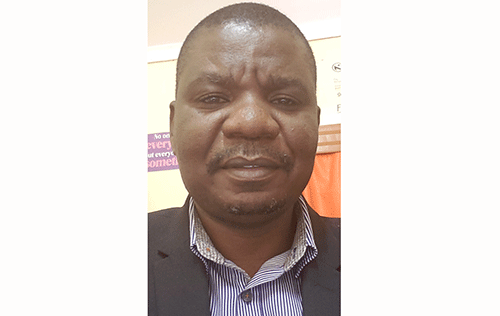“The time had arrived to elect individuals with ideas because the politics of the 21st century is about ideas and the competition of ideas,” according to Professor Patrick Loch Otieno Lumumba.
I believe our misfortune will never change unless the electorate has a mental shift and start realising that no one will improve the state they find themselves in but themselves. Elections after elections, people go to polls to elect individuals who they deem capable of representing their interests, but the opposite happens.
Many people blame the elected politicians for their misfortune, forgetting who put them in that position. Let’s not continue blaming politicians for the misery we are subjected to because we are co-signatories to this adversity.
If someone were to take a snapshot of the living condition of most Namibians today, would it look more like a prosperous photo or a painful image that you want
to delete? An image characterised by self-hate, dejected youth, zink classrooms, falling infrastructure, tribalism, higher crime rate and hopelessness. Many critical minds are beginning to realise the promises made of a prosperous and industrialised nation by 2030 are not eliciting any glimmer of hope that the Land of the Brave will be able to live up to the dream of making it prosperous for all those who live in it.
With the 2024 national elections fast approaching, many people are sceptic about whether it will bring inclusivity and equal development to all parts of Namibia.
This situation does not cast aspersion on the future elected candidates but reflects the expediency of managing our expectations. I am beginning to reflect on who will make Namibia prosperous and inclusive for all. I mean, who will save Namibia from its social ills, such as tribalism, nepotism, favouritism, exclusivity, unemployment and crime? I am talking about the troubles that have made Namibia the world’s second most unequal country.
We must be honest enough and engage the 2024 candidates to tell us how they want to seize democratic institutions and processes to deliver Namibia from the curse of tribalism, corruption, cronyism and exclusivity that cannot deliver the prosperity and good life to the people.
I would like all of us who believe in the future of Namibia to bear this in mind as we glide towards yet another election cycle. Before we doze off, we should realise that unless we renew our minds and get ready to fight the principalities and powers that have made Namibia a struggling state, nothing will change after the elections.
Democracy should not just be about regular elections, but it should make meaning in the lives of citizens. Plato once remarked that democracy is a terrible system, a prelude to tyranny, which gives power to selfish and dangerous demagogues. It produces incompetent and dishonest political leaders who exploit people’s credulity. Observing what is happening these days in democracies around the world, it is hard to disagree with Plato.
After a honeymoon period between electorates and their winning candidate or party, often as short as a month, regret takes over.
Why? Is it the fault of the voters who expect too much, or do they not understand what is going on – how complex the job of governing can be, and how campaign promises cannot be kept? It has been convincingly argued that it is indeed the electorates’ fault.
Voters generally favour policies that enhance their well-being with little consideration for future generations or long-term outcomes. Politicians are rewarded for pandering to voters’ immediate demands and desires.
Many electorates don’t have well-founded preferences; most pay little attention to real politics, vote irrationally and decide based on social identities, partisan loyalties and those good at rhetorical games but not on competency and plans for the future direction of the country. Many don’t understand the cause and long-term effects and generally favour policies that enhance their well-being.
Voters at times elect incompetent leaders when they feel the previous one personally betrayed them or the alternative is worse (the devil we know). Every society gets the leadership it deserves. Bad leaders are elected by good people who do not vote. Good leaders are elected, and abstaining cannot do it.
Therefore, if the electorates are to begin to contribute to their affairs, they must begin learning from the past. But the question is, are we learning? Do we still need the same old politicians dressed in new robes?
Why must we remind ourselves of these realities? Because past elections have proven that elected leaders only care for their self-interest and to be called honourable despite being horrible. They have conquered our minds by believing blindly in their shenanigans that the battle has always been of the mind. If our minds are not liberated, we will continue to elect unqualified candidates and only become snivelers.
The time has come to elect individuals who will lead change, propose sustainable development and care for the plebeians. We do not need negative leaders who attack others and focus on the past.
Consequently, if we want to see a change in our sufferings, the electorate should decide not to be co-signatories to the country’s adversity.
*Faustinus Shikukutu is an experienced and passionate educator with research experience. He holds a PhD from the University of KwaZulu-Natal and conducted research in gender studies.


